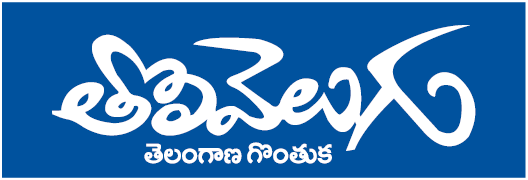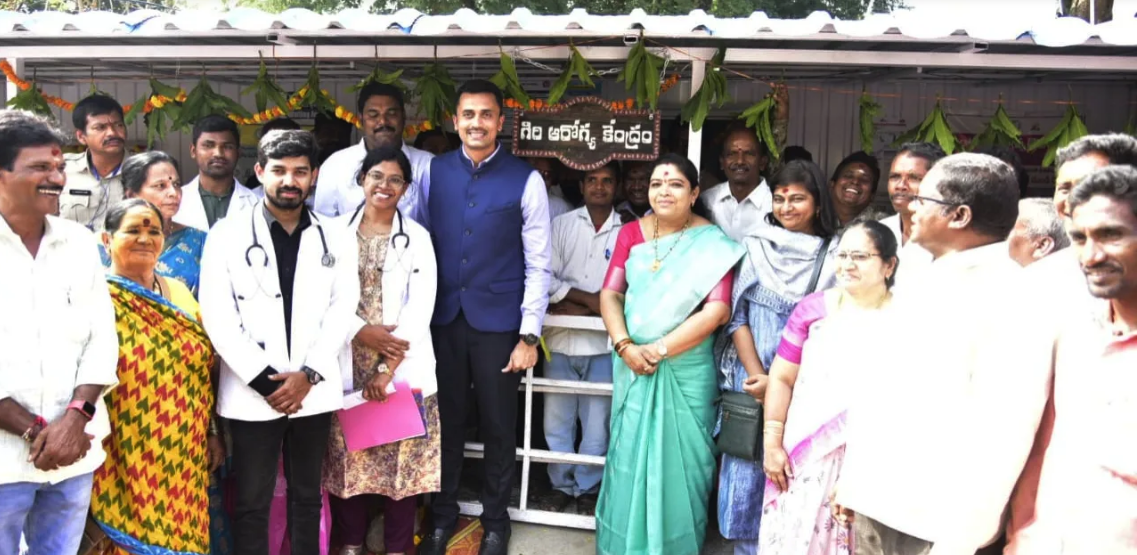Minister for Tribal Welfare and Women & Child Welfare, Gummadi Sandhyarani, announced the government’s commitment to providing all basic amenities to tribal communities in the state. As part of this initiative, the first container hospital was inaugurated to eliminate the need for “doli muthas” (makeshift stretchers) in tribal areas. The minister launched the Giri Health Center (Container Hospital) established by the Health Department in Karadavalsa village, Salur Mandal, on Monday.
Speaking on the occasion, the minister emphasized that the state’s first container hospital aims to provide healthcare services to remote tribal villages and hilly areas. The facility is designed to meet the healthcare needs of approximately 2,000 people, marking a significant step forward in delivering accessible healthcare to underserved communities.
105 Types of Medicines Available
The minister highlighted that the hospital would cater to several villages, including Bellapaka, Boddapadu, Narinjapadu, Karadavalsa, and Karadakotavalsa in Salur Mandal, along with Chakirevuvalsa, Kankanapalli, Ajuru, and Kumbivalasa in Pachipenta Mandal. She noted that this initiative would reduce the need for rural residents to travel long distances for basic medical care.
Key services include weekly outpatient consultations by medical officers and bi-monthly visits by mobile medical units on designated Wednesdays. Auxiliary Nurse Midwives (ANMs) and Mid-Level Health Providers (MLHPs) will conduct outpatient services thrice a week, while ASHA workers will be available daily. The hospital is equipped with 105 types of medicines to address common ailments.
Specialized Services for Pregnant Women
Medicines for conditions like blood pressure and diabetes are available at the facility, along with services for pregnant women. Pregnant women suffering from anemia will be provided with iron tablets and iron injections at the hospital, eliminating the need to visit other facilities. Monthly check-ups and blood tests will also be conducted. Additionally, 14 diagnostic tests, including malaria, dengue, diabetes, anemia, hepatitis, HIV, water quality, TB, iodine levels, and vision screening, will be performed.
Focus on Maternal and Child Health
Vaccination drives for children and a Universal Immunization Program (UIP) will be conducted every second Saturday of the month. Efforts to promote maternal and child health, along with general outpatient care for minor ailments and the management of communicable and non-communicable diseases, are part of the hospital’s offerings.
Collector Shyam Prasad Stresses Importance of Accessibility
District Collector A. Shyam Prasad emphasized that the Giri Health Center aims to eliminate the reliance on makeshift stretchers for transporting patients and provide accessible healthcare in tribal areas. He noted that anemia is a prevalent issue in tribal regions, prompting the formation of an Anemia Action Committee, which will meet bi-weekly to monitor the health and nutrition of pregnant women, postpartum mothers, and children under five.
The collector added that adolescent health summits and awareness programs on tuberculosis would be conducted at the center. Additional activities include reviews by self-help group members and adult education awareness sessions.
The services available also cover neonatal and pediatric care, geriatric and palliative care, minor trauma, mental health screening, and basic dental and ENT care. The collector urged tribal residents to make full use of these services.
The inauguration was attended by district health officials, including Dr. K. Vijayaparvathi, Nodal Officer Dr. M. Vinod, and Program Officer Dr. T. Jaganmohan Rao, alongside other medical staff and district authorities.






